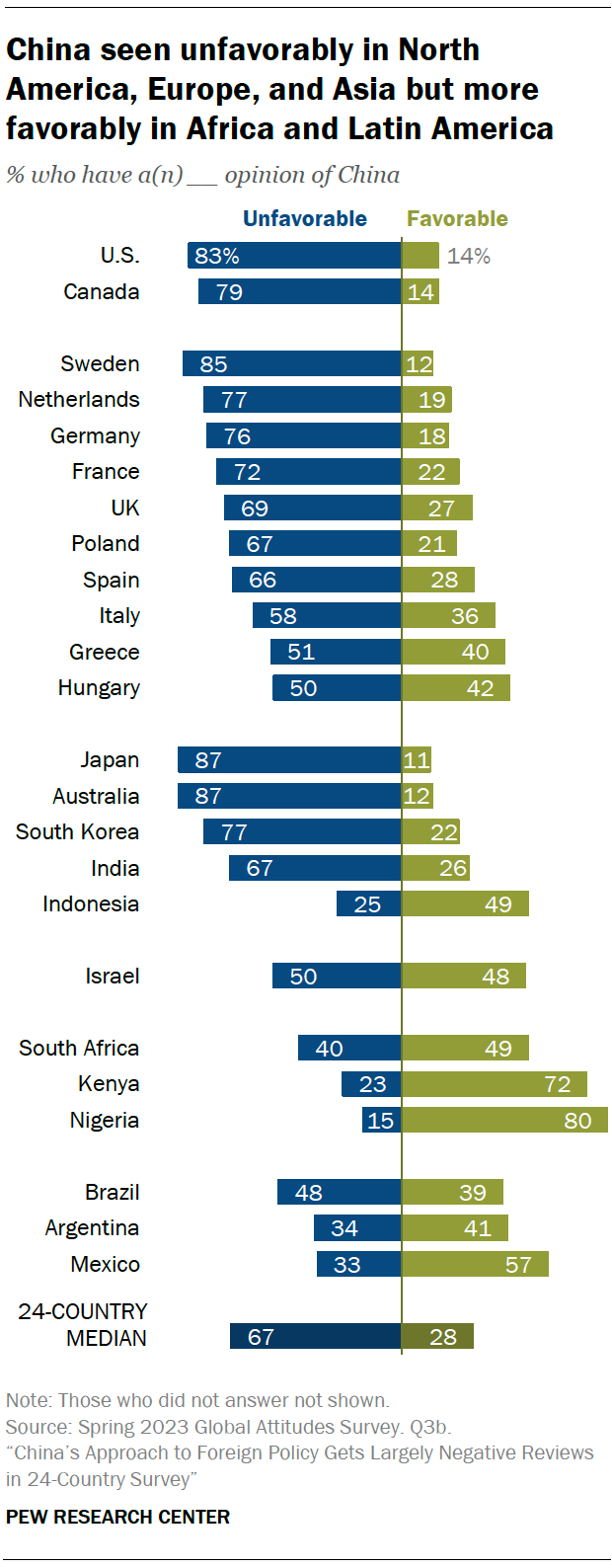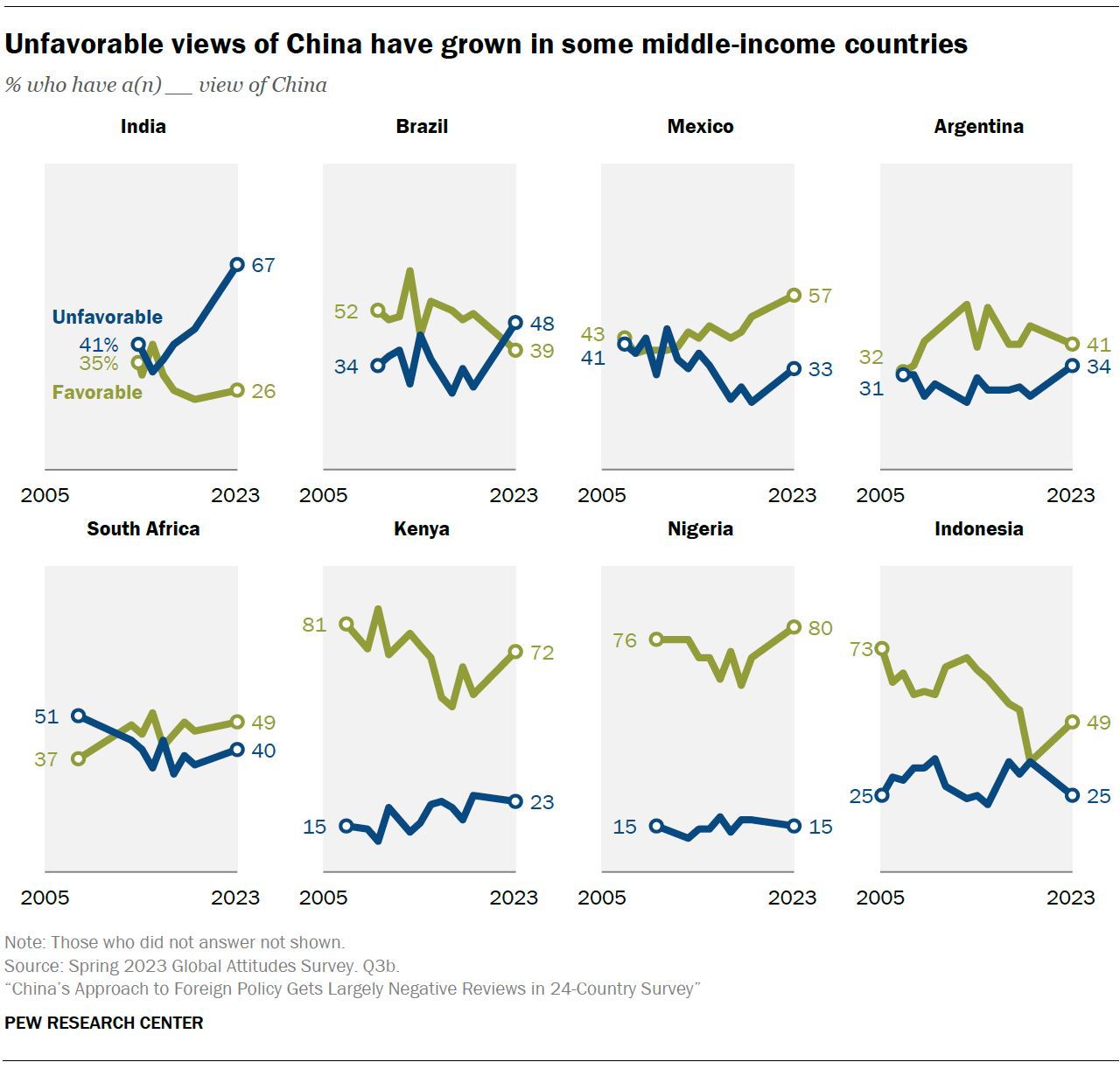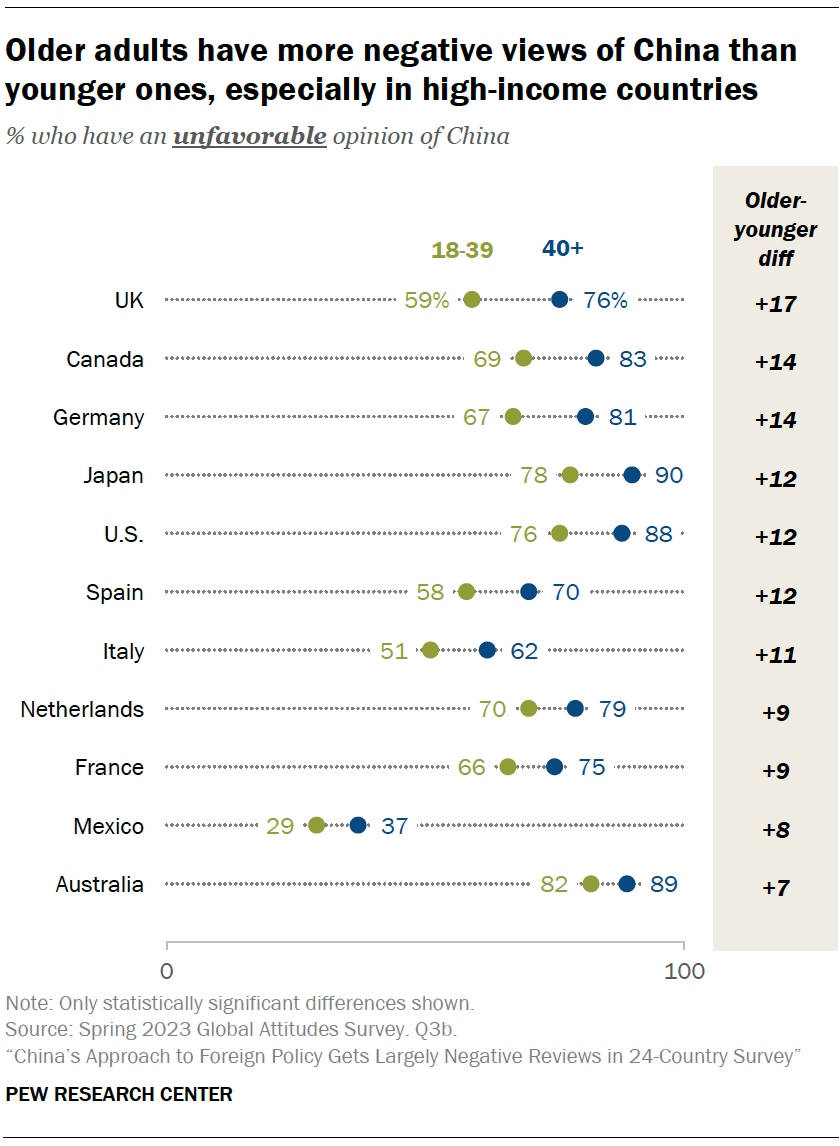
Attitudes toward China are largely negative across the 24 countries surveyed. A median of two-thirds say they have an unfavorable opinion of the country and a median of just 28% offer positive ratings.
Half or more in each of the North American and European countries surveyed have somewhat or very unfavorable opinions of China. This includes majorities of three-quarters or more in Sweden, the U.S., Canada, the Netherlands and Germany.
In the Asia-Pacific region, views vary widely. While Australia and Japan stand out as the countries with the highest unfavorable ratings (87% each), just a quarter of Indonesian adults offer negative evaluations of China. And in India, where two-thirds have a negative view of China, half of adults offer very unfavorable opinions of the neighboring country (the largest share in any country surveyed).
Opinion of China in the Latin American countries surveyed – Brazil, Argentina and Mexico – varies as well, though the spread is much smaller. While a slim majority of Mexicans say they have positive views of China, a plurality of Brazilians offer negative ratings and views in Argentina are more split.
The sub-Saharan African populations surveyed offer some of the highest ratings of China. Nigeria and Kenya stand out for their shares of favorable views (80% and 72%, respectively), and a plurality of South Africans hold favorable opinions as well.
How views of China have changed in recent years
In many countries surveyed, the shares who say they have an unfavorable opinion of China are at or near their historic highs in Pew Research Center’s nearly two decades of polling on this topic. Among the middle-income countries – last surveyed in 2019 because of the coronavirus pandemic – Indians stand out for their increasingly negative opinion of China, similar in pattern to many of the high-income countries surveyed in recent years. Negative views in India rose from 46% in 2019 to 67% in 2023. During this same time period, a conflict along the India-China border has repeatedly flared up.

The shares offering unfavorable evaluations of China also grew in Brazil, Mexico, Argentina and South Africa. In Brazil, the public went from being net favorable toward China in 2019 to net unfavorable in 2023.
Notably, in Mexico, favorable views of China have also risen in the last four years. Since 2019, China’s rate of foreign direct investment in Mexico has markedly increased, driven in part by “nearshoring,” or the trend of establishing foreign-owned means of production closer to major consumer populations – in this case, the U.S. The simultaneous increase in both positive and negative evaluations of China among Mexicans is the result of an 18-point decrease in the share who chose not to offer an opinion on the topic.
Likewise, positive ratings of China have grown significantly in Nigeria, Kenya and Indonesia.
In countries that were also surveyed in 2022, unfavorable views of China are largely similar to last year. Significant year-over-year change in negative ratings only occurred in three countries. In Poland and Canada, views have turned more negative (+12 and +5 percentage points, respectively). In Italy, opinion of China warmed modestly, though the survey concluded amid discussions that Italian Prime Minister Giorgia Meloni was interested in breaking ties with China’s Belt and Road Initiative.
Views of China by age group

In 11 countries – mostly high-income ones – older adults have more negative views of China than their younger counterparts. In the United Kingdom, for example, 76% of those ages 40 and older say they have an unfavorable opinion of China, compared with 59% of those ages 18 to 39. Significant age differences are also present in Canada, Germany, Japan, the U.S., Spain, Italy, the Netherlands, France, Mexico and Australia.1


